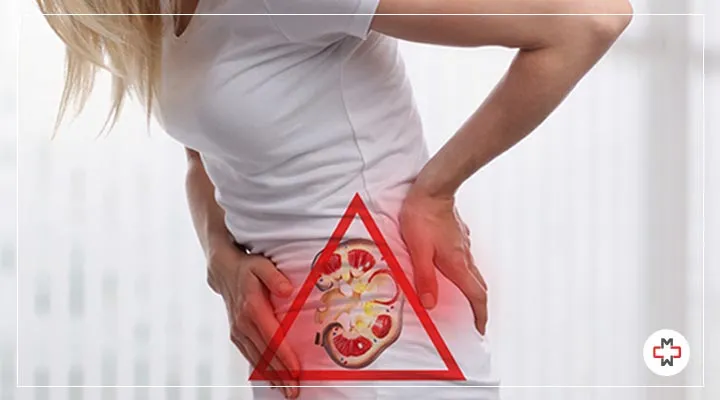Exactly how to Separate In Between Kidney Stones vs UTI: Secret Aspects and Analysis Tips
Exactly how to Separate In Between Kidney Stones vs UTI: Secret Aspects and Analysis Tips
Blog Article
Exploring the Effects and Causes of Kidney Stones in Comparison to Urinary System System Infections: A Thorough Overview
The expedition of kidney rocks and urinary system infections (UTIs) discloses a complicated interplay of signs and underlying reasons that necessitate mindful evaluation. While both conditions can bring about hematuria, they present unique professional attributes and occur from various etiological variables. Comprehending the subtleties of each condition is vital for effective medical diagnosis and monitoring. What are the essential differences in their signs, and how might these educate therapy techniques? The response to these concerns might give essential understandings into the prevention and care of these usual urological issues.
Overview of Kidney Stones
Kidney stones, also called kidney calculi, kind when specific materials in the pee crystallize and aggregate, leading to the development of difficult down payments within the kidneys. These stones can vary in size, varying from a grain of sand to a golf ball, and can be made up of numerous materials, the most common being calcium oxalate, uric acid, struvite, and cystine. The formation of kidney stones is influenced by several factors, including dietary practices, liquid intake, and genetic tendency.
Symptoms of kidney stones may consist of extreme pain in the back or side, blood in the pee, nausea, and regular urination, particularly as the stone relocates through the urinary tract. Medical diagnosis usually includes imaging researches such as ultrasound or CT scans, together with urinalysis to determine the stone's structure.
Therapy alternatives differ based upon the dimension and kind of stone, in addition to the extent of signs (Kidney Stones vs UTI). Little stones may pass normally with enhanced liquid consumption, while larger rocks might need medical interventions such as lithotripsy or medical removal. Comprehending the pathophysiology and risk elements connected with kidney stones is crucial for reliable prevention and management
Introduction of Urinary System Tract Infections
Urinary system infections (UTIs) are common microbial infections that influence any type of part of the urinary system, consisting of the kidneys, ureters, bladder, and urethra. They predominantly take place when bacteria, usually from the stomach tract, go into the urinary system, leading to inflammation and infection.
The frequency of UTIs is notably higher in women than men, mostly as a result of physiological differences, such as a shorter urethra. Threat factors include sex, certain contraceptive approaches, urinary retention, and dehydration. The diagnosis of UTIs is generally verified via urine tests, which may expose the existence of microorganisms, white blood cells, or red cell.

Symptoms of Kidney Stones
The pain related to kidney rocks can show up in various means, typically leading people to look for medical interest. One of one of the most common signs is serious discomfort, typically local in the reduced back or side, which may emit to the abdominal area or groin. This discomfort, usually referred to as sharp or cramping, can happen all of a sudden and might rise and fall in intensity.
In addition, individuals might experience hematuria, or blood in the pee, which can range from tiny amounts to noticeable staining. This signs and symptom may be come with by changes in urinary system practices, such as boosted frequency or seriousness, as well as pain during urination. Nausea or vomiting and vomiting are additionally widespread, usually resulting from the body's response to intense pain.
In many cases, people may experience fever and chills, specifically if an additional infection develops because of the blockage brought on by the rocks. Generally, the mix of serious discomfort, hematuria, altered urinary system patterns, and stomach signs can supply substantial insight right into the presence of kidney stones, calling for punctual clinical evaluation and intervention. Understanding these symptoms is critical for timely diagnosis and efficient administration of the problem.
Signs of Urinary System Infections
Infections within the urinary tract commonly present a variety of unique symptoms that can substantially influence daily life. The most typical signs and symptoms include a persistent impulse to pee, commonly accompanied by a burning sensation during peeing, called dysuria. Individuals might likewise experience enhanced frequency of urination, creating little quantities of urine each time.
Various other remarkable symptoms consist of over cast or foul-smelling see this here pee, which may indicate the visibility of germs or pus. Sometimes, pee might show up red or pink as a result of the presence of blood, a problem called hematuria. Additionally, individuals may experience pelvic discomfort or stress, which can further exacerbate the sensation of necessity.
Systemic signs and symptoms might also manifest, such as fever, chills, and fatigue, particularly if the infection has ascended to the kidneys. It is vital to identify these signs and symptoms early, as neglected urinary system tract infections can lead to extra severe issues. Kidney Stones vs UTI. Trigger clinical attention is suggested when these signs are observed, enabling ideal analysis examination and treatment to reduce pain and avoid additional health issues
Sources Of Each Condition
Regularly, kidney stones and urinary tract infections arise from distinct yet in some cases overlapping causes that can impact individuals in different ways. Kidney stones usually develop as a result of metabolic factors, dietary selections, and genetic predispositions. Enhanced degrees of calcium, oxalate, or uric acid in the pee can bring about rock development. Dehydration, inadequate liquid intake, and high-sodium diet plans can worsen these conditions, promoting crystallization within the urinary system.

Comprehending these find here distinct causes is critical for prevention and therapy. Kidney Stones vs UTI. While way of living alterations might reduce the risk of kidney rocks, ideal hygiene and punctual therapy of urinary system infections are necessary for lowering their recurrence and associated problems
Final Thought
In summary, kidney rocks and urinary tract infections existing unique symptoms and underlying causes. Kidney rocks are identified by severe pain and metabolic factors, while urinary why not look here tract infections mainly include microbial infections bring about urinary urgency and pain. Although both problems can lead to hematuria, their development mechanisms vary dramatically. Comprehending these distinctions is important for reliable diagnosis and treatment, ultimately improving client outcomes for those affected by either problem.
The expedition of kidney rocks and urinary system infections (UTIs) reveals a complex interplay of signs and underlying causes that require careful examination.Urinary tract infections (UTIs) are usual microbial infections that affect any kind of part of the urinary system, consisting of the kidneys, ureters, bladder, and urethra.Frequently, kidney rocks and urinary system system infections arise from distinctive yet sometimes overlapping causes that can affect people in a different way.In summary, kidney rocks and urinary system tract infections present distinct symptoms and underlying causes. Kidney stones are identified by extreme pain and metabolic variables, while urinary system infections largely include bacterial infections leading to urinary seriousness and pain.
Report this page